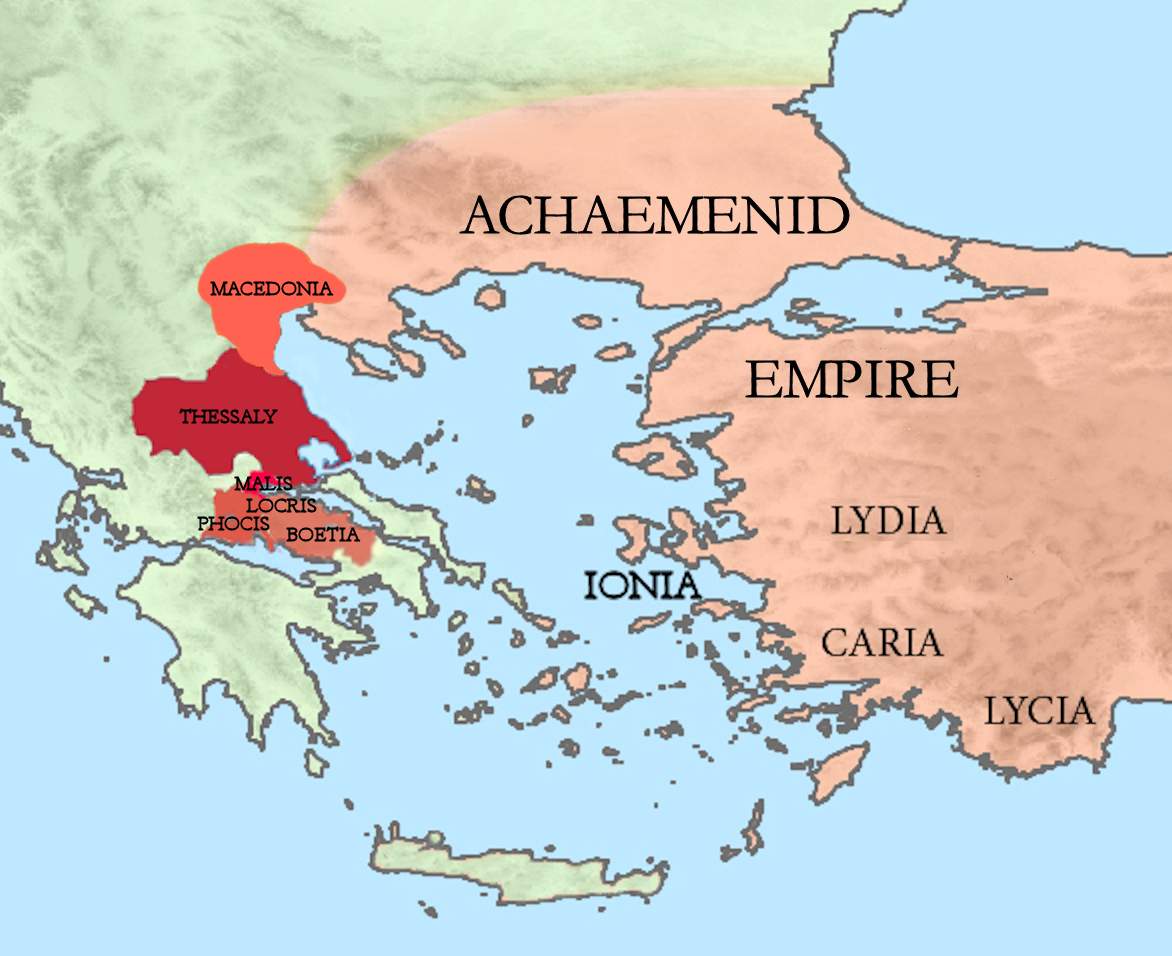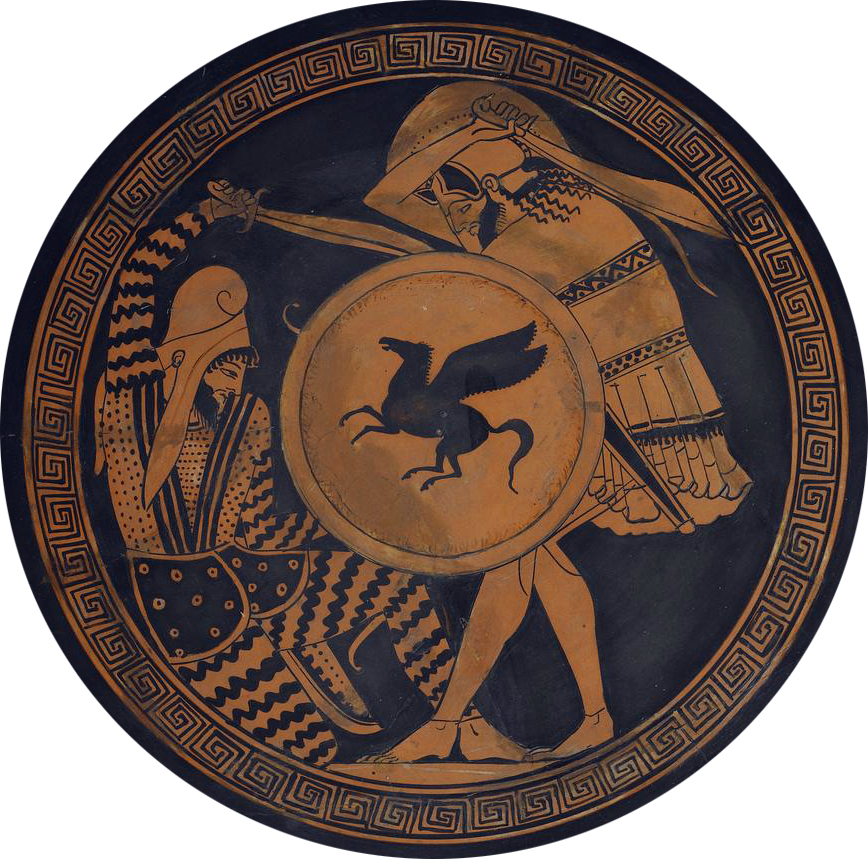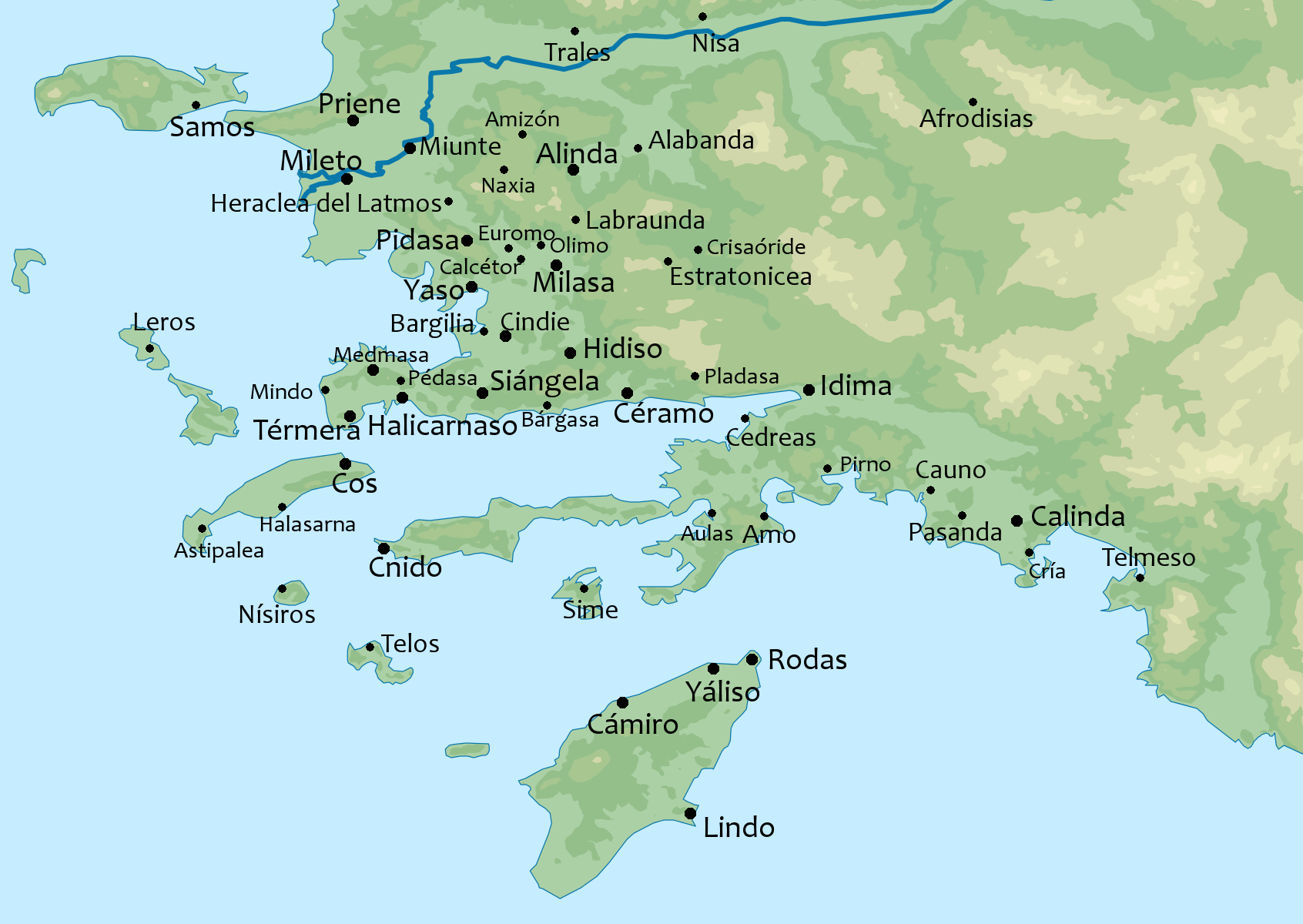|
Herodotus
Herodotus ( ; grc, , }; BC) was an ancient Greek historian and geographer from the Greek city of Halicarnassus, part of the Persian Empire (now Bodrum, Turkey) and a later citizen of Thurii in modern Calabria (Italy). He is known for having written the ''Histories'' – a detailed account of the Greco-Persian Wars. Herodotus was the first writer to perform systematic investigation of historical events. He is referred to as " The Father of History", a title conferred on him by the ancient Roman orator Cicero. The ''Histories'' primarily cover the lives of prominent kings and famous battles such as Marathon, Thermopylae, Artemisium, Salamis, Plataea, and Mycale. His work deviates from the main topics to provide a cultural, ethnographical, geographical, and historiographical background that forms an essential part of the narrative and provides readers with a wellspring of additional information. Herodotus has been criticized for his inclusion of "legends ... [...More Info...] [...Related Items...] OR: [Wikipedia] [Google] [Baidu] |
Histories (Herodotus)
The ''Histories'' ( el, Ἱστορίαι, ; also known as ''The History'') of Herodotus is considered the founding work of history in Western literature. Written around 430 BC in the Ionic dialect of classical Greek, ''The Histories'' serves as a record of the ancient traditions, politics, geography, and clashes of various cultures that were known in Greece, Western Asia and Northern Africa at that time. Although not a fully impartial record, it remains one of the West's most important sources regarding these affairs. Moreover, it established the genre and study of history in the Western world (despite the existence of historical records and chronicles beforehand). ''The'' ''Histories'' also stands as one of the earliest accounts of the rise of the Persian Empire, as well as the events and causes of the Greco-Persian Wars between the Persian Empire and the Greek city-states in the 5th century BC. Herodotus portrays the conflict as one between the forces of slavery (the ... [...More Info...] [...Related Items...] OR: [Wikipedia] [Google] [Baidu] |
Battle Of Thermopylae
The Battle of Thermopylae ( ; grc, Μάχη τῶν Θερμοπυλῶν, label= Greek, ) was fought in 480 BC between the Achaemenid Persian Empire under Xerxes I and an alliance of Greek city-states led by Sparta under Leonidas I. Lasting over the course of three days, it was one of the most prominent battles of both the second Persian invasion of Greece and the wider Greco-Persian Wars. The engagement at Thermopylae occurred simultaneously with the Battle of Artemisium: between July and September 480 BC. The second Persian invasion under Xerxes I was a delayed response to the failure of the first Persian invasion, which had been initiated by Darius I and ended in 490 BC by an Athenian-led Greek victory at the Battle of Marathon. By 480 BC, a decade after the Persian defeat at Marathon, Xerxes had amassed a massive land and naval force, and subsequently set out to conquer all of Greece. In response, the Athenian politician and general Themistocles proposed that th ... [...More Info...] [...Related Items...] OR: [Wikipedia] [Google] [Baidu] |
Battle Of Plataea
The Battle of Plataea was the final land battle during the second Persian invasion of Greece. It took place in 479 BC near the city of Plataea in Boeotia, and was fought between an alliance of the Greek city-states (including Sparta, Athens, Corinth and Megara), and the Persian Empire of Xerxes I (allied with Greece's Boeotians, Thessalians, and Macedonians). The previous year the Persian invasion force, led by the Persian king in person, had scored victories at the battles of Thermopylae and Artemisium and conquered Thessaly, Phocis, Boeotia, Euboea and Attica. However, at the ensuing Battle of Salamis, the allied Greek navy had won an unlikely but decisive victory, preventing the conquest of the Peloponnesus. Xerxes then retreated with much of his army, leaving his general Mardonius to finish off the Greeks the following year. In the summer of 479 BC the Greeks assembled a huge (by ancient standards) army and marched out of the Peloponnesus. The Persians retr ... [...More Info...] [...Related Items...] OR: [Wikipedia] [Google] [Baidu] |
Greco-Persian Wars
The Greco-Persian Wars (also often called the Persian Wars) were a series of conflicts between the Achaemenid Empire and Greek city-states that started in 499 BC and lasted until 449 BC. The collision between the fractious political world of the Greeks and the enormous empire of the Persians began when Cyrus the Great conquered the Greek-inhabited region of Ionia in 547 BC. Struggling to control the independent-minded cities of Ionia, the Persians appointed tyrants to rule each of them. This would prove to be the source of much trouble for the Greeks and Persians alike. In 499 BC, the tyrant of Miletus, Aristagoras, embarked on an expedition to conquer the island of Naxos, with Persian support; however, the expedition was a debacle and, preempting his dismissal, Aristagoras incited all of Hellenic Asia Minor into rebellion against the Persians. This was the beginning of the Ionian Revolt, which would last until 493 BC, progressively drawing more regions of Asia Minor int ... [...More Info...] [...Related Items...] OR: [Wikipedia] [Google] [Baidu] |
Achaemenid Empire
The Achaemenid Empire or Achaemenian Empire (; peo, 𐎧𐏁𐏂, , ), also called the First Persian Empire, was an ancient Iranian empire founded by Cyrus the Great in 550 BC. Based in Western Asia, it was contemporarily the largest empire in history, spanning a total of from the Balkans and Egypt in the west to Central Asia and the Indus Valley in the east. Around the 7th century BC, the region of Persis in the southwestern portion of the Iranian plateau was settled by the Persians. From Persis, Cyrus rose and defeated the Median Empire as well as Lydia and the Neo-Babylonian Empire, marking the formal establishment of a new imperial polity under the Achaemenid dynasty. In the modern era, the Achaemenid Empire has been recognized for its imposition of a successful model of centralized, bureaucratic administration; its multicultural policy; building complex infrastructure, such as road systems and an organized postal system; the use of official languages acros ... [...More Info...] [...Related Items...] OR: [Wikipedia] [Google] [Baidu] |
Battle Of Salamis
The Battle of Salamis ( ) was a naval battle fought between an alliance of Greek city-states under Themistocles and the Persian Empire under King Xerxes in 480 BC. It resulted in a decisive victory for the outnumbered Greeks. The battle was fought in the straits between the mainland and Salamis, an island in the Saronic Gulf near Athens, and marked the high point of the second Persian invasion of Greece. To block the Persian advance, a small force of Greeks blocked the pass of Thermopylae, while an Athenian-dominated Allied navy engaged the Persian fleet in the nearby straits of Artemisium. In the resulting Battle of Thermopylae, the rearguard of the Greek force was annihilated, while in the Battle of Artemisium the Greeks suffered heavy losses and retreated after the loss at Thermopylae. This allowed the Persians to conquer Phocis, Boeotia, Attica and Euboea. The Allies prepared to defend the Isthmus of Corinth while the fleet was withdrawn to nearby Salamis Island. Alth ... [...More Info...] [...Related Items...] OR: [Wikipedia] [Google] [Baidu] |
Battle Of Marathon
The Battle of Marathon took place in 490 BC during the first Persian invasion of Greece. It was fought between the citizens of Athens, aided by Plataea, and a Persian force commanded by Datis and Artaphernes. The battle was the culmination of the first attempt by Persia, under King Darius I, to subjugate Greece. The Greek army inflicted a crushing defeat on the more numerous Persians, marking a turning point in the Greco-Persian Wars. The first Persian invasion was a response to Athenian involvement in the Ionian Revolt, when Athens and Eretria sent a force to support the cities of Ionia in their attempt to overthrow Persian rule. The Athenians and Eretrians had succeeded in capturing and burning Sardis, but they were then forced to retreat with heavy losses. In response to this raid, Darius swore to burn down Athens and Eretria. According to Herodotus, Darius had his bow brought to him and then shot an arrow "upwards towards heaven", saying as he did so: "Zeus, that it ... [...More Info...] [...Related Items...] OR: [Wikipedia] [Google] [Baidu] |
Battle Of Mycale
The Battle of Mycale ( grc, Μάχη τῆς Μυκάλης; ''Machē tēs Mykalēs'') was one of the two major battles (the other being the Battle of Plataea) that ended the second Persian invasion of Greece during the Greco-Persian Wars. It took place on or about August 27, 479 BC on the slopes of Mount Mycale, on the coast of Ionia, opposite the island of Samos. The battle was fought between an alliance of the Greek city-states, including Sparta, Athens and Corinth, and the Persian Empire of Xerxes I. The previous year, the Persian invasion force, led by Xerxes himself, had scored victories at the battles of Thermopylae and Artemisium, and conquered Thessaly, Boeotia and Attica; however, at the ensuing Battle of Salamis, the allied Greek navies had won an unlikely victory, and therefore prevented the conquest of the Peloponnese. Xerxes then retreated, leaving his general Mardonius with a substantial army to finish off the Greeks the following year. In the summer of ... [...More Info...] [...Related Items...] OR: [Wikipedia] [Google] [Baidu] |
Battle Of Artemisium
The Battle of Artemisium or Artemision was a series of naval engagements over three days during the second Persian invasion of Greece. The battle took place simultaneously with the land battle at Thermopylae, in August or September 480 BC, off the coast of Euboea and was fought between an alliance of Greek city-states, including Sparta, Athens, Corinth and others, and the Persian Empire of Xerxes I. The Persian invasion was a delayed response to the defeat of the first Persian invasion of Greece, which had been ended by the Athenian victory at the Battle of Marathon. King Xerxes had amassed a huge army and navy, and set out to conquer all of Greece. The Athenian general Themistocles proposed that the Allied Greeks block the advance of the Persian army at the pass of Thermopylae and simultaneously block the Persian navy at the Straits of Artemisium. An Allied naval force of 271 triremes was thus dispatched to await the arrival of the Persians. Approaching Artemisium towards ... [...More Info...] [...Related Items...] OR: [Wikipedia] [Google] [Baidu] |
Caria
Caria (; from Greek: Καρία, ''Karia''; tr, Karya) was a region of western Anatolia extending along the coast from mid- Ionia (Mycale) south to Lycia and east to Phrygia. The Ionian and Dorian Greeks colonized the west of it and joined the Carian population in forming Greek-dominated states there. Carians were described by Herodotus as being of Minoan descent,''The Histories'', Book I Section 171. while he reports that the Carians themselves maintained that they were Anatolian mainlanders intensely engaged in seafaring and were akin to the Mysians and the Lydians. The Carians spoke Carian, a native Anatolian language closely related to Luwian. Also closely associated with the Carians were the Leleges, which could be an earlier name for Carians. Municipalities of Caria Cramer's detailed catalog of Carian towns in classical Greece is based entirely on ancient sources. The multiple names of towns and geomorphic features, such as bays and headlands, reveal an ethn ... [...More Info...] [...Related Items...] OR: [Wikipedia] [Google] [Baidu] |
Historian
A historian is a person who studies and writes about the past and is regarded as an authority on it. Historians are concerned with the continuous, methodical narrative and research of past events as relating to the human race; as well as the study of all history in time. Some historians are recognized by publications or training and experience.Herman, A. M. (1998). Occupational outlook handbook: 1998–99 edition. Indianapolis: JIST Works. Page 525. "Historian" became a professional occupation in the late nineteenth century as research universities were emerging in Germany and elsewhere. Objectivity During the '' Irving v Penguin Books and Lipstadt'' trial, people became aware that the court needed to identify what was an "objective historian" in the same vein as the reasonable person, and reminiscent of the standard traditionally used in English law of " the man on the Clapham omnibus". This was necessary so that there would be a legal benchmark to compare and contrast the sch ... [...More Info...] [...Related Items...] OR: [Wikipedia] [Google] [Baidu] |
Halicarnassus
Halicarnassus (; grc, Ἁλικαρνᾱσσός ''Halikarnāssós'' or ''Alikarnāssós''; tr, Halikarnas; Carian: 𐊠𐊣𐊫𐊰 𐊴𐊠𐊥𐊵𐊫𐊰 ''alos k̂arnos'') was an ancient Greek city in Caria, in Anatolia. It was located in southwest Caria, on an advantageous site on the Gulf of Gökova, which is now in Bodrum, Turkey.} The city was famous for the Mausoleum of Halicarnassus, also known simply as the Tomb of Mausolus, whose name provided the origin of the word " mausoleum". The mausoleum, built from 353 to 350 BC, ranked as one of the seven wonders of the ancient world. Halicarnassus' history was special on two interlinked issues. Halicarnassus retained a monarchical system of government at a time when most other Greek city states had long since rid themselves of their kings. And secondly, while their Ionian neighbours rebelled against Persian rule, Halicarnassus remained loyal to the Persians and formed part of the Persian Empire until Alexand ... [...More Info...] [...Related Items...] OR: [Wikipedia] [Google] [Baidu] |










